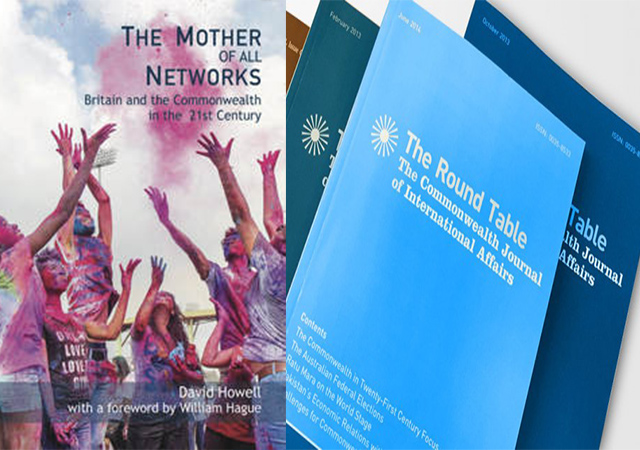
[These are two extracts from a book review by Sir Peter Marshall of The Mother of all Networks: Britain and the Commonwealth in the 21st Century, by David Howell.]
Quite simply, this relatively short book is marvellous. And that is no surprise.
In the struggle to secure the devotion by the UK government of the requisite degree of attention to the Commonwealth as a factor in our global concerns, present and future, one figure towers above all others: Lord Howell of Guildford, statesman, writer, polymath and visionary.
The philosopher Alfred North Whitehead drew a distinction between intelligence and ability. The former quality he defined as ‘quickness of apprehension’ and the latter as ‘the capacity to act wisely on the matter apprehended’. The latter he judged to be rarer than the former. It is when you get the two plentifully together, as is the case with David Howell, that things start to be different.
The book’s context is explained with admirable succinctness in the foreword by Lord Hague, himself no mean historian, as well as a former Foreign and Commonwealth Secretary. In his preface, the author emphasises both the complexity and the delicacy of the UK’s task and opportunity. He also points out that many of the texts in the book were written or spoken decades ago. What he presents is thus ‘an unfolding story rather than an up-to-the-minute picture of a world in flux’: not so much, in other words, a summary or synthesis of all his efforts, as a selective recollection or restatement of them.
The titles of the six chapters furnish between them so clear and comprehensive an account of what is at issue that they merit being set out in full:
- ‘Networks, the microchip & the conditions of the 21st century’
- ‘The UK’s foreign policy & the need for change’
- ‘Our real friends’
- ‘Twenty years of disappointment’
- ‘Towards a Commonwealth mark two’
- ‘The next step: a fresh foreign policy for Britain’
This sequence is as analytically rigorous as one could ask. Chapters 1, 3 and 5 have ‘conclusions’; the others have concluding passages. There are useful side-headings throughout. The latter illustrate inter alia the interdependence of the subject matter. Ideally, indeed, all six chapters should be read simultaneously. Alternatively, the titles of the chapters should be regarded as partly interchangeable. The joined-up thinking in which it abounds means that the book is a network in itself.
——————————————————————————————————————————
Running an interdependent world in this constructive way, highly desirable as it is, demands more than adherence to rules. It is dependent on ‘community spirit’: willing acceptance of responsibility towards, or for, others. When there is a strong feeling that some partners are abusing or exploiting that spirit, or – worse still – have been doing so consistently for years, there will be trouble. That is where we are now.
That is also where the Commonwealth comes in. We are not just a rules-based system: we are a values-based community, or society, or association, which has grown not imperially but empirically out of a past empire. We know without being told that making a success of our interdependent existence depends to a great extent on how we treat one another individually, as well as how the member countries get along with one another. The more diverse and mobile our societies are, the more this aspect of our life matters. The Commonwealth increasingly manifests itself as being concerned with relations within countries, as well as among them.
We also know that at the end of the day the chief ingredients of success in the management of communities more or less of any sort are hard work and good will; and that some members of a community will display these essential qualities to a greater extent than will others. The former worthies have been graphically described as ‘load-bearing structures’, while the chief concern of the latter, which does not pass unnoticed by their more industrious colleagues, may be not to overexert themselves.
The inevitable vagaries of implementing the desirable principle of equitable geographical distribution may contribute to the problem. (‘How many people work here?’ is a stock visitor’s question: ‘about half of them at any one time’ is the apocryphal answer in the case of UN establishments.) The better the job the community does, however, the less any eccentricities of individual input will seem to matter.
The concluding passage of Chapter 4, feelingly entitled ‘Twenty years of disappointment’, poses a question of refreshing directness about the need for a paradigm shift in the attitude of the British Establishment towards the Commonwealth: ‘Has the penny dropped?’
[The Mother of all Networks: Britain and the Commonwealth in the 21st Century, by David Howell, London, Gilmagesh Publishing, 2018, 192 pp., £19.95 (Hardback), ISBN 9781908531940].
Sir Peter Marshall was Commonwealth Deputy Secretary-General from 1983–1988.



